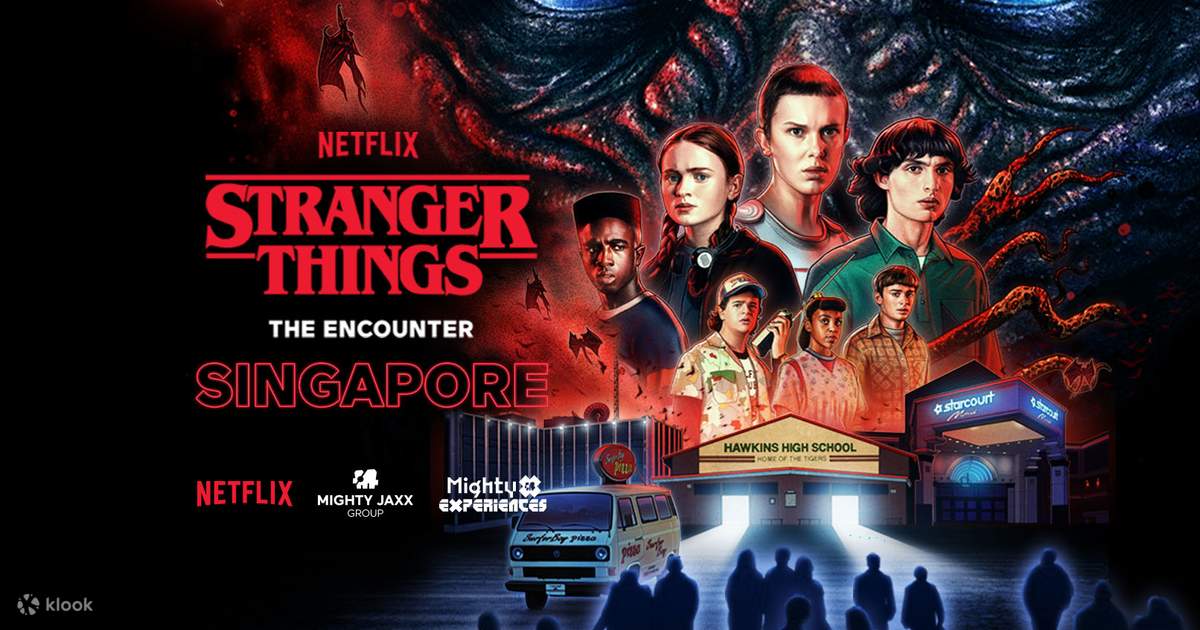Netflix has long been a dominant force in the streaming world, but there’s a particular stretch of time when the platform truly hit its peak, delivering a quartet of shows that captivated global audiences and set a new standard for television. Breaking Bad, Peaky Blinders, The Queen’s Gambit, and Stranger Things—each a masterpiece in its own right—represent Netflix at its finest, offering a mix of gripping storytelling, unforgettable characters, and cultural impact that’s hard to match. These four “bangers,” as fans call them, aren’t just shows; they’re phenomena that shaped how we consume and talk about television. Let’s dive into why these series are Netflix’s crowning achievements and why their legacy endures.
Breaking Bad: The Blueprint for Prestige TV
![Xem Phim Phá Luật - Phần 1 | BREAKING BAD - SEASON 1 | [Full HD Engsub + Vietsub]](https://www.studyphim.vn/system/movies/1133/thumbnails/original/1.jpg)
When Breaking Bad first aired on AMC in 2008, few could have predicted its seismic impact on television. By the time it landed on Netflix, its reputation as a must-watch series had already taken hold, and the streaming platform amplified its reach to a global audience. The story of Walter White (Bryan Cranston), a high school chemistry teacher turned methamphetamine kingpin, and his former student Jesse Pinkman (Aaron Paul), is a masterclass in character development and moral ambiguity.
Breaking Bad’s five-season run, which concluded in 2013, follows Walter’s descent into the criminal underworld after a cancer diagnosis forces him to secure his family’s financial future. What begins as a desperate act—cooking blue candy-like meth with Jesse—spirals into a web of violence, power struggles, and betrayal. The show’s brilliance lies in its slow-burn tension and meticulous plotting, with creator Vince Gilligan ensuring every episode builds toward an inevitable, tragic climax. Iconic moments like Walter’s chilling “I am the one who knocks” speech and the explosive showdown with Gus Fring (Giancarlo Esposito) remain etched in TV history.
On Netflix, Breaking Bad found a second life, becoming a binge-watching staple for millions. Its availability on the platform introduced the series to a new generation, cementing its status as one of the greatest shows ever made. The show’s success also spawned a critically acclaimed spin-off, Better Call Saul, and a sequel film, El Camino: A Breaking Bad Movie, both of which Netflix proudly hosts. With 16 Primetime Emmy Awards, including two for Outstanding Drama Series, Breaking Bad set the bar for what prestige TV could achieve—a bar Netflix was eager to meet with its own originals.
Peaky Blinders: A Stylish Gangster Epic
![Trọn Bộ] Peaky Blinders - Season 3 (Full Song Ngữ Anh Việt) | Bóng Ma Anh Quốc Phần 3](https://www.studyphim.vn/system/movies/8277/thumbnails/original/81TSCOH01gL._RI_.jpg)
Next up is Peaky Blinders, a British period drama that blends historical grit with cinematic flair. Created by Steven Knight, the series premiered on BBC Two in 2013 and later became a Netflix darling, with the streaming giant co-producing its later seasons. Set in post-World War I Birmingham, the show follows the Shelby family, led by the cunning and ruthless Tommy Shelby (Cillian Murphy), as they rise from street gangsters to powerful players in a world of organized crime.
Peaky Blinders is known for its atmospheric storytelling, impeccable costume design, and a soundtrack that juxtaposes modern rock (think Nick Cave and Arctic Monkeys) with the 1920s setting. Tommy, a war veteran haunted by his past, navigates a dangerous landscape of rival gangs, corrupt politicians, and even the Italian mafia, all while trying to keep his family together. The ensemble cast—featuring Helen McCrory as the fierce Aunt Polly, Paul Anderson as the volatile Arthur Shelby, and Anya Taylor-Joy as Tommy’s eventual wife Gina Gray—delivers performances that are as raw as they are riveting.
The show’s six seasons, which concluded in 2022, chart the Shelbys’ ascent and the personal toll of their ambition. Netflix’s involvement ensured Peaky Blinders reached a global audience, with each season dropping on the platform shortly after its BBC airing. Fans have praised the show’s ability to balance high-stakes drama with intimate character moments, from Tommy’s struggles with PTSD to his complex relationship with Grace Burgess (Annabelle Wallis), an undercover agent turned ally. A feature film, set to wrap up the story, is currently in production, with Murphy reprising his role. Peaky Blinders’ blend of style, substance, and swagger makes it a standout in Netflix’s catalog.
The Queen’s Gambit: A Checkmate Sensation

In 2020, Netflix dropped The Queen’s Gambit, a limited series that took the world by storm. Based on Walter Tevis’s 1983 novel, the show follows Beth Harmon (Anya Taylor-Joy), a chess prodigy who rises to international fame while battling addiction and personal demons. Set against the backdrop of the 1950s and 60s, the series is a visual feast, with its retro aesthetic, stunning costumes, and meticulously choreographed chess matches.
Beth’s journey begins in an orphanage, where she learns chess from a janitor, Mr. Shaibel (Bill Camp), and discovers her extraordinary talent. As she climbs the ranks of the chess world, defeating grandmasters and breaking gender barriers, Beth grapples with the pressures of fame, her reliance on tranquilizers, and the loneliness of her genius. Taylor-Joy’s performance is magnetic, capturing Beth’s intensity and vulnerability with equal measure. The supporting cast, including Marielle Heller as Beth’s adoptive mother Alma and Thomas Brodie-Sangster as rival-turned-friend Benny Watts, adds depth to the story.
The Queen’s Gambit was a cultural phenomenon, drawing 62 million households in its first 28 days on Netflix—a record for a limited series at the time. It sparked a global chess craze, with sales of chess sets soaring and online platforms like Chess.com reporting a surge in players. The show’s seven episodes are a perfect blend of drama, suspense, and heart, culminating in Beth’s triumphant match against Soviet grandmaster Vasily Borgov (Marcin Dorociński). With 11 Emmy Awards, including Outstanding Limited Series, The Queen’s Gambit proved Netflix could deliver a self-contained story with the impact of a multi-season epic.
Stranger Things: The Nostalgic Sci-Fi Blockbuster

Rounding out the quartet is Stranger Things, Netflix’s love letter to 1980s pop culture. Created by the Duffer Brothers, the series premiered in 2016 and quickly became a global sensation. Set in the fictional town of Hawkins, Indiana, Stranger Things follows a group of kids—Mike, Dustin, Lucas, and Eleven—as they uncover supernatural mysteries involving a secret government lab, a parallel dimension called the Upside Down, and a telekinetic girl named Eleven (Millie Bobby Brown).
The show’s first season, with its mix of Spielbergian wonder and Stephen King-inspired horror, hooked viewers immediately. The kids’ friendship, brought to life by breakout stars Finn Wolfhard, Gaten Matarazzo, Caleb McLaughlin, and Brown, is the heart of the series, while the adults—Winona Ryder as the frantic Joyce Byers and David Harbour as the gruff Chief Hopper—add emotional weight. Over four seasons (with a fifth and final season set for 2026), Stranger Things has expanded its scope, introducing new threats like the Mind Flayer and Vecna while leaning into its nostalgic aesthetic with synth-heavy music and countless ‘80s references.
Stranger Things has been a juggernaut for Netflix, with Season 4 alone garnering over 1.4 billion hours viewed. Its blend of horror, humor, and heart has made it a cultural touchstone, inspiring everything from Halloween costumes to Kate Bush’s “Running Up That Hill” resurgence. The show’s ability to evolve—maturing alongside its young cast while never losing its sense of wonder—has kept fans coming back. As we await the final season, Stranger Things remains a testament to Netflix’s knack for creating shared cultural moments.
Why These Four Shows Define Netflix’s Peak
What makes Breaking Bad, Peaky Blinders, The Queen’s Gambit, and Stranger Things Netflix’s ultimate “bangers”? Each show excels in its genre—crime drama, historical epic, character-driven period piece, and sci-fi horror—while sharing a few key traits. First, they’re all character-focused, with protagonists (Walter White, Tommy Shelby, Beth Harmon, Eleven) whose journeys resonate deeply. Second, they balance entertainment with substance, tackling themes like morality, trauma, addiction, and friendship. Third, they’ve had a lasting cultural impact, from Breaking Bad’s influence on modern TV to The Queen’s Gambit’s chess boom.
Netflix’s role in their success can’t be overstated. By making Breaking Bad and Peaky Blinders accessible to a global audience, producing Stranger Things as a flagship original, and greenlighting The Queen’s Gambit as a passion project, the platform showcased its ability to curate and create content that transcends borders. These shows also highlight Netflix’s golden era, a time when its algorithm seemed to perfectly align with viewer tastes, delivering hit after hit.
The Legacy and What’s Next
As of May 2025, Netflix continues to build on the legacy of these shows. Breaking Bad’s universe lives on through Better Call Saul (which concluded in 2022) and El Camino. Peaky Blinders fans are eagerly awaiting the upcoming film, while Stranger Things Season 5 promises to wrap up the Hawkins saga in epic fashion. The Queen’s Gambit, though a limited series, has sparked discussions of a potential anthology follow-up focusing on another chess prodigy.
These four shows remind us why Netflix became the streaming giant it is today. They’re not just bangers—they’re benchmarks, proving that great storytelling, bold characters, and a platform that knows how to deliver them can change the game. Whether you’re revisiting Walter White’s empire, Tommy Shelby’s Birmingham, Beth Harmon’s chessboard, or the Upside Down, these series are Netflix at its peak, and their impact will be felt for years to come.




